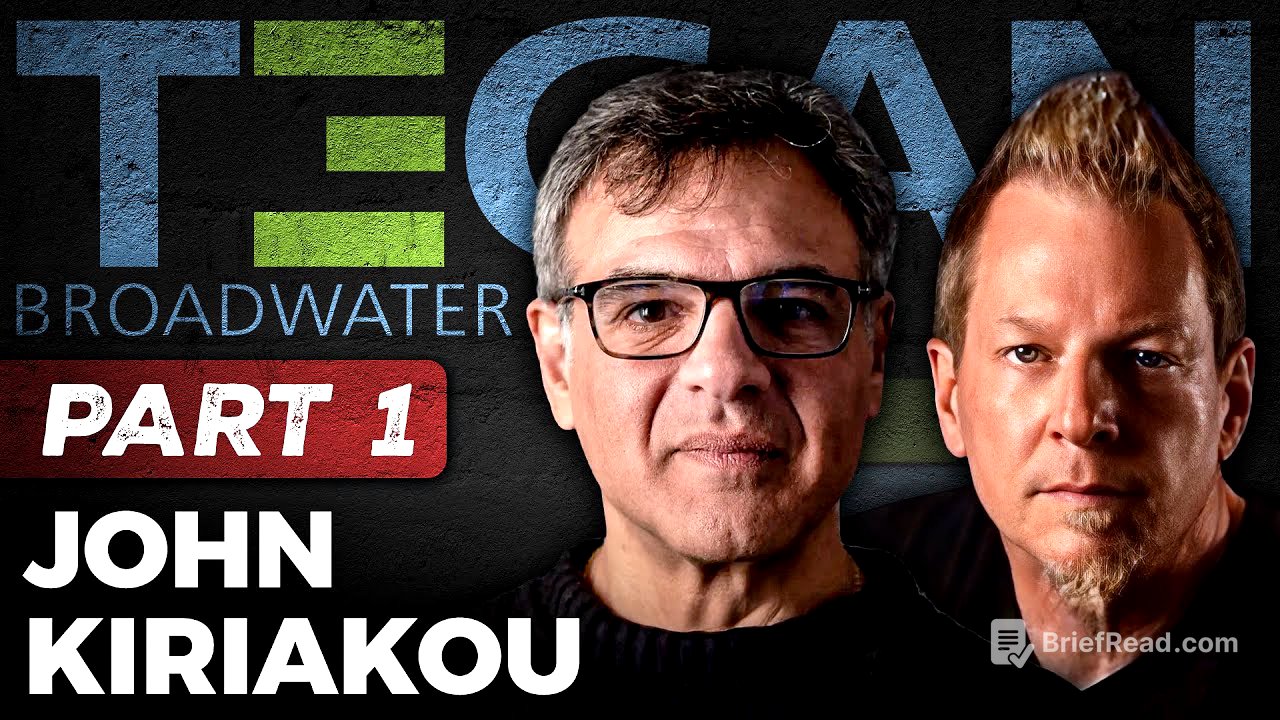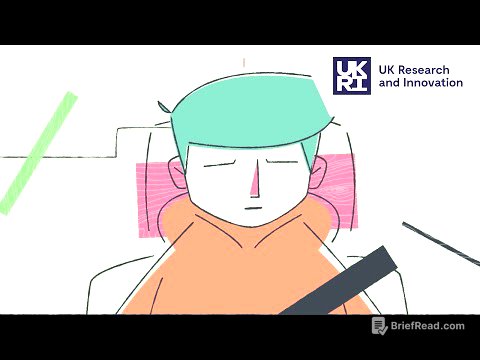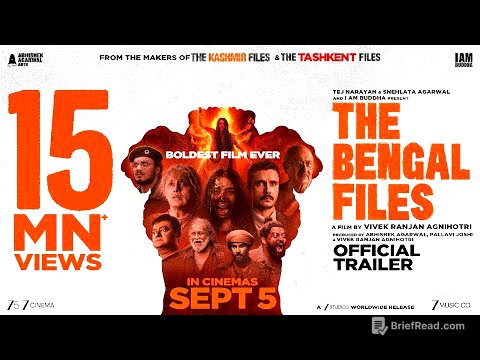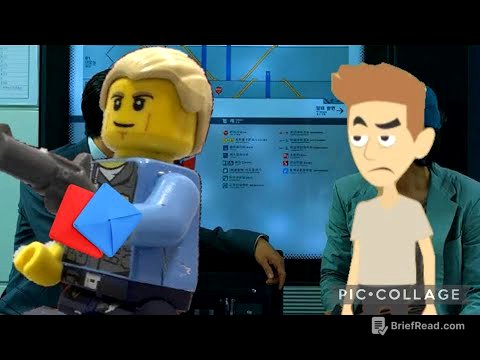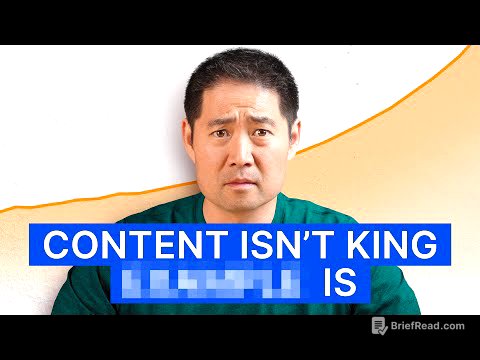TLDR;
This interview with John Kuryaku, a retired undercover CIA officer, covers his childhood aspirations to become a spy, his career in the CIA with a focus on counterterrorism, and his involvement in the 9/11 torture program, which led to his imprisonment. He shares insights into CIA recruitment, the use of polygraphs, and the moral complexities of espionage. The conversation also touches on political issues, personal anecdotes, and reflections on his experiences, including a hit put out on him and his subsequent divorce.
- Childhood dream of becoming a spy.
- Career in CIA, focusing on counterterrorism.
- Insights into CIA recruitment and polygraph usage.
- Involvement in the 9/11 torture program and imprisonment.
- Reflections on political issues and personal experiences.
Intro [0:00]
The video begins with a series of intense, brief anecdotes, setting a dramatic tone. These include a president looking to the speaker for guidance, a near-suicidal moment, a graphic description of a crime scene, a boss informing the speaker of a manifesto mentioning him, a wife requesting a divorce, and a request for significant resources (36 people, millions in cash) fulfilled with the arrival of an unmarked 737. The host then introduces John Kuryaku, a retired undercover CIA officer, whistleblower, and author, emphasizing his extraordinary stories and relatable human qualities.
Childhood Aspirations and Early Influences [3:15]
John Kuryaku recounts his childhood dream of becoming a spy, influenced by the Iranian hostage crisis and fueled by a set of walkie-talkies he received as a gift. He recalls telling his father at 16 about his desire to be a spy in the Middle East, which was met with surprise. Despite his father's initial reservations and a near-recruitment by the army, Kuryaku pursued Middle Eastern studies at George Washington University, despite financial constraints.
Early Career and Initial Disillusionment [7:26]
Kuryaku describes his early days at the CIA, where he was assigned to Iraq and Kuwait, considered uneventful postings. He recalls being unimpressed by the head of security's declaration that Soviet communism was the gravest challenge facing the United States. Kuryaku also shares details about his family background, including his father's PhD in music and his siblings' successful careers in music production and investments.
Recruitment and Sociopathic Tendencies [11:03]
Kuryaku recounts how he was "spotted" and recruited into the CIA during graduate school. He addresses the question of sociopathic tendencies within the agency, explaining that the CIA looks for individuals with such tendencies but not full-blown sociopaths. He illustrates this with an anecdote about a training scenario where he suggested breaking into an embassy to steal documents, a response considered a sociopathic tendency.
The Polygraph as a Tool [15:06]
Kuryaku explains the use of polygraphs in the CIA, emphasizing that they measure physiological changes rather than detecting lies directly. He shares anecdotes about polygraph examiners eliciting unexpected admissions, such as beastiality, by pushing interviewees to admit something. He also notes that the standards for past behavior, such as drug use and sexual orientation, have changed over time.
Adjusting Requirements and Local Customs [20:33]
Kuryaku argues that the CIA needs to adapt to local customs and attract individuals willing to push boundaries without breaking U.S. laws. He uses the example of chewing "qat" in Yemen, a cultural practice that is also a DEA-scheduled drug. He emphasizes that most CIA officers are patriotic and want to serve the country, but their job often involves breaking laws overseas, such as committing espionage and trying to convince people to commit treason.
The Art of Recruitment and Building Relationships [24:15]
Kuryaku describes the process of recruiting spies, emphasizing the importance of building trust and friendship with potential recruits. He shares anecdotes about extravagant gestures, such as helicopter tours and deep-sea fishing trips, to win over individuals. He also recounts a story about a first tour officer who ordered an expensive bottle of wine, leading to diplomatic repercussions.
Training and Cultural Assimilation [28:05]
Kuryaku explains that the CIA provides some training in language and expects officers to be well-traveled and culturally aware. He shares a story about a friend who used a gym bag full of money to "cold pitch" a foreign intelligence officer, demonstrating the crude realities of espionage. He notes that asylum is not typically offered upfront, as agents are more valuable working in place.
From Analyst to Counterterrorism Operations [32:27]
Kuryaku recounts his transition from an analyst to counterterrorism operations, driven by boredom and a desire for more action. He describes the intensive training he underwent, including crash courses, weapons certifications, airborne training, and bomb-making. He notes that the training was highly valuable and closely mirrored real-world scenarios.
President Clinton and a Meeting in Greece [43:14]
Kuryaku shares an anecdote from his time in Greece when President Bill Clinton visited. He was assigned to take notes during Clinton's meeting with Greek officials, which he found to be a pointless exercise in political pandering. He recounts a humorous exchange between Clinton and Hillary Clinton, highlighting the president's discomfort with silence and Hillary's apparent bitterness.
Political Shifts and Partisanship [50:40]
Kuryaku reflects on the increasing polarization in Washington, D.C., noting that Democrats and Republicans used to be friends but now barely speak to each other. He expresses his disillusionment with the Democratic Party and his support for libertarianism. He discusses the need for a viable third party and the challenges of achieving political consensus in a multi-party system.
Hits and Surveillance Detection [57:48]
Kuryaku discusses the threats he faced during his time in operations, including multiple attempts on his life. He recounts an incident in Greece where a British defense attache was assassinated, and he was later mentioned in a manifesto. He shares details about his surveillance detection training and an incident where he spotted FBI surveillance while teaching a class.
Pakistan and the Hunt for Abu Zubaydah [1:15:00]
Kuryaku describes his assignment to Pakistan after 9/11, where he was tasked with developing a standard operating procedure for taking down al-Qaeda safe houses. He recounts the challenges of working with the FBI and the Pakistanis, as well as the emotional impact of the attacks. He shares anecdotes about early raids and the eventual hunt for Abu Zubaydah.
The Raid and Capture [1:32:46]
Kuryaku details the complex operation to capture Abu Zubaydah, involving 36 people, millions of dollars, and 14 potential sites. He recounts the challenges of coordinating the raid, including communication failures and unexpected discoveries. He describes the moment when they finally located Abu Zubaydah and the chaotic aftermath of the capture.
Aftermath and Reflections on Abu Zubaydah [1:45:59]
Kuryaku reflects on his brief interactions with Abu Zubaydah after his capture, noting that he was not the high-ranking al-Qaeda leader they initially believed. He shares details about Abu Zubaydah's diary and cell phone, as well as a conflict with an FBI agent over accessing the phone. He expresses his regret over the torture program and his desire to apologize to Abu Zubaydah.
Torture Program and Personal Turmoil [2:02:30]
Kuryaku discusses the CIA's torture program, noting that it was ineffective and counterproductive. He recounts how he was caught off guard during an interview about the program and how he later learned that he had been misinformed. He shares details about his arrest and conviction, as well as the support he received from his wife and brother.
Prison and Redemption [2:11:03]
Kuryaku describes his experiences in prison, where he used CIA tactics to survive and thrive. He recounts how he exposed crimes committed against him by prison guards, leading to media attention and a confrontation with the warden. He shares details about his relationships with other inmates, including members of organized crime families.
Forgiveness and Moving Forward [2:18:34]
Kuryaku reflects on the importance of forgiveness, drawing inspiration from Muhammadu Ould Slahi, a former Guantanamo detainee. He discusses his current activities, including teaching, writing, and hosting TV shows and podcasts. He emphasizes the importance of being a good human being and promoting good ideas, regardless of political affiliation.
